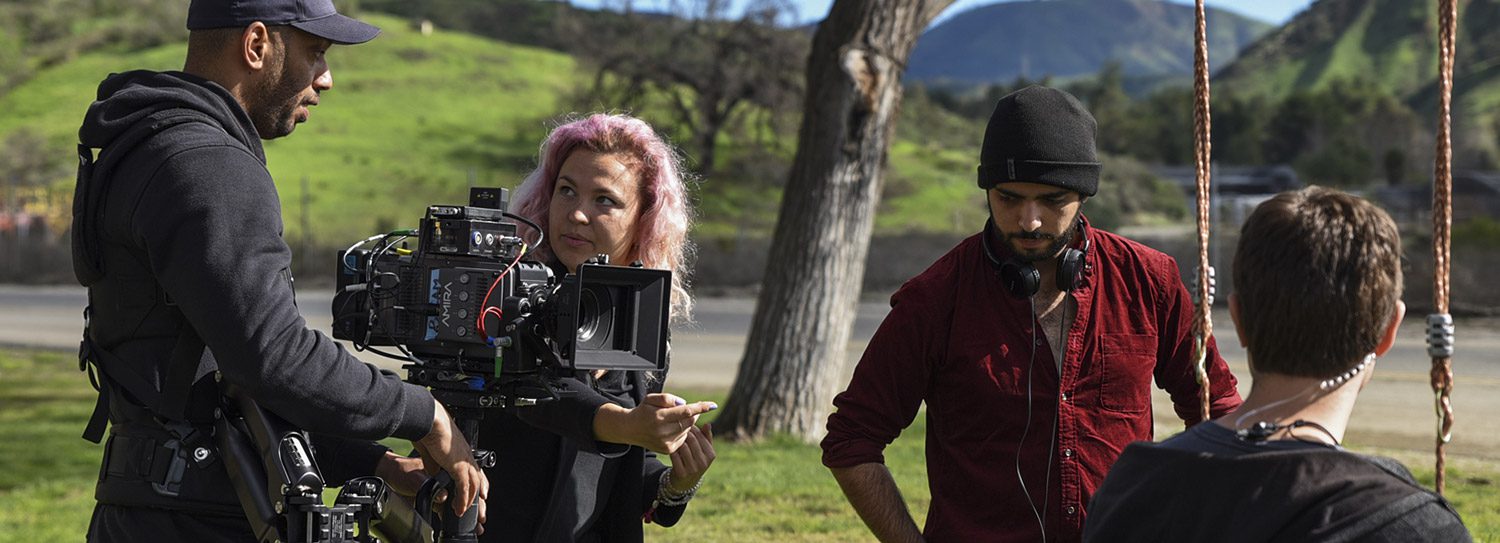Ranked as one of the top film schools in America, the AFI Conservatory is searching for the next generation of filmmakers with individual artistic voices to apply as Fellows to one of the six disciplines in our MFA program. The AFI Conservatory does not offer any undergraduate degree programs and only admits once a year for fall term.
AFI Fellows come from a diverse background and are represented by the majority of states in the U.S. and over 40 countries around the world. Fellows at the Conservatory bring to life our mission and vision by serving as artists and leaders in the art of storytelling and influencing culture through their contributions to film and television.
The information on this page is for applicants to learn how to successfully apply to the MFA program, as well as provide instructions on material submissions for the Cinematography, Directing, Editing, Producing, Production Design, and Screenwriting disciplines.
The AFI Admissions Office understands applying to graduate school is a lot of work and appreciates the time and attention every applicant puts into their materials. Should there be any questions about the admissions requirements, please contact the Admissions Office for clarification at Admissions@AFI.com.
BEFORE YOU APPLY
- Learn about each AFI Conservatory program and decide which program is the best fit.
- Read the FAQ as it provides answers to many frequently asked questions.
- Learn about tuition, fees and estimated living expenses by reviewing and understanding the cost of attendance.
- Review the admissions requirements and discipline-specific requirements to prepare for submitting the online application.
- Prepare all your application material well in advance. All material is due on the application deadline date.
- Visit the Scholarship page to learn more about our donor-based scholarship opportunities for applicants who made need tuition assistance.
- Be aware that any use of LLM Artificial Intelligence technology must be disclosed in the application. Failure to disclose the use of AI technology may disqualify applicants from admissions consideration or result in early dismissal if enrolled.
- Add Applications@AFI.com, Admissions@AFI.com and the domain address AFI.com/AFI.edu to your preferred email settings. Communications about your application will come from those email addresses or a staff email address. It is important to check your spam/junk folder to ensure you are not missing important communications.
*AFI is not responsible for any missed communications if applicants are not checking their spam folders or adding AFI domain addresses to their approved list of emails.
2024–2025 Admission Requirements
All applicants for admission to the MFA or Certificate of Completion at the AFI Conservatory must submit the following:
ONLINE APPLICATION
AFI uses the GradCAS application system. The application portal will be available starting on September 7, 2023 for Fall 2024 applicants. Please note applicants can only apply to a maximum of two programs.
Applications for Fall 2024 are now closed for Cinematography, Directing, Editing, Producing and Screenwriting.
Deadline Extended to Production Design: Production Design applications for Fall 2024 will remain open until April 1, 2024. Online applications and portfolio requirements must be received by 8:59 p.m. PT (11:59 p.m. ET) on April 1, 2024.
Click Here to apply for the Production Design program.
Applications for Fall 2025 for all disciplines (Cinematography, Directing, Editing, Producing, Production Design and Screenwriting) will open September 2024.












